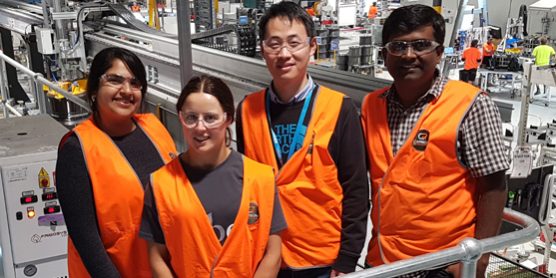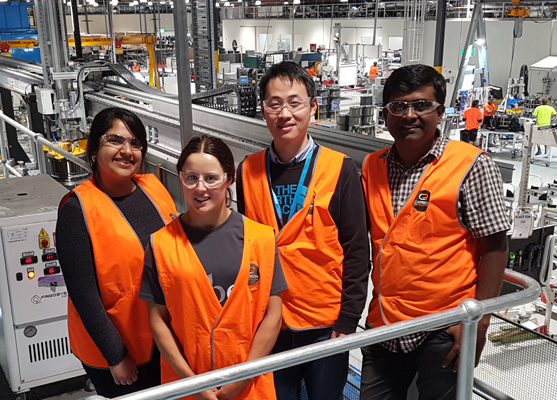Composite Wheel Technology on Track
Carbon Revolution’s “Industrialisation of Composite Wheel Technology” project progresses in line with its overall project goals across a number of areas.
The project team, comprising of researchers from Deakin University and Carbon Revolution engineers, has grown to 11 full-time members with additional resources through the Institute for Intelligent Systems Research and Innovation (IISRI) to focus on Industry 4.0 initiatives.
Carbon Revolution is the only company globally to have successfully developed and manufactured single-piece carbon fibre automotive wheels to Original Equipment Manufacturer (OEM) quality standards with commercial adoption across several major OEM models.
Carbon fibre wheels have a range of benefits over wheels constructed from traditional materials, including improved vehicle efficiency, enhanced vehicle performance, increased range for electric vehicles, improved noise, vibration and harshness performance, and aesthetic improvements. With a target weight reduction of up to 50% per wheel, carbon fibre wheel technology provides a very significant reduction in rotating unsprung weight.
With Carbon Revolution based onsite at the Deakin Waurn Ponds campus, this enables the Deakin team to be embedded within their facility, fully immersed within engineering, development and process engineering teams. This close working relationship with the industry partner provides the opportunity for the team to be aligned with the latest priorities and challenges with the manufacture of carbon fibre wheels. This gives us the best of both worlds, says project manager Rod Macaulay. – “We have access to IFM’s world class material development facilities and expertise, while working side by side with the industry partner.”
The project focuses on the ongoing development of Carbon Revolution’s material and process technologies, in order to ensure that Carbon Revolution retains and extends its leadership position in high performance carbon fibre wheels. The project scope is quite vast with research and development covering resins, carbon fibre, RTM processing, surface finish, preform optimisation, non-destructive testing, thermal management and industry 4.0 best practice. This requires a very diverse team from a variety of different backgrounds. Overall goals of this project are around material and process improvements, improved quality and lower cost for a high volume manufactured carbon fibre composite product.
The project has already provided some incremental improvements with a number of longer-term initiatives still under development. Now past the half way mark of the original development plan, expected completion date is Jun 2021.

